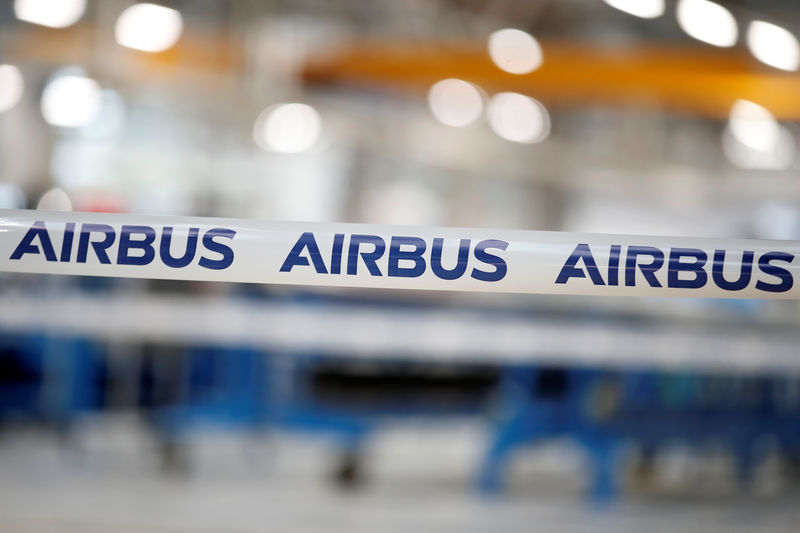(Bloomberg) -- Airbus SE's (PA:AIR) plans to lift jet output at a factory in Alabama could help curb its exposure to U.S. tariffs set to be imposed on planes imported from Europe.
Build rates at the Mobile plant currently stand at five A320-series narrow-body aircraft a month, up from four last year, and Airbus is committed to a further increase in production, according to the Toulouse, France-based company.
While the U.S. factory has a theoretical capacity of eight A320s a month, Airbus hasn’t indicated when that rate might be reached, a spokesman said Thursday.
Airbus was spared the full impact of the tariffs in a move by the U.S. that may be aimed at protecting local jobs. The list of goods slated for duties includes “new airplanes” from the four European countries deemed by the World Trade Organization to have provided it with illegal launch aid.
That means components and large structures like wings can be shipped from Europe for assembly in Mobile without incurring levies, though the degree to which the exemption will provide a workaround depends on how much of Airbus’s U.S. backlog can be satisfied from the Alabama plant.
Expansion there won’t help Airbus avoid duties on wide-body aircraft, which it only makes in Europe. Delta Air Lines Inc (NYSE:DAL). and United Airlines Holdings Inc. have about 90 such A330 and A350 planes on order between them, according to Airbus’s order and delivery figures for August.
Airbus currently produces about 60 A320-series narrow-body jets a month worldwide, and aims to lift that rate to 63 by 2021.
The company has seven other final assembly lines for A320s in addition to Mobile, four in Hamburg, Germany, two at its headquarters in Toulouse, France, and one in Tianjin in China. A further unit may be added, most likely replacing the A380 superjumbo line in Toulouse that’s earmarked for closure. Mobile has also begun assembling A220 jets, with the first deliveries due next year.
While terms of the U.S. tariffs would appear to open the door for Airbus to supply U.S. customers from its China site without incurring the new penalty, doing so could risk worsening existing confrontations over trade.
